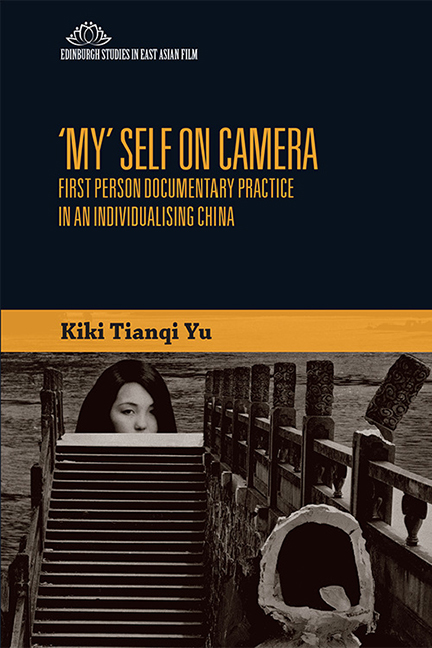Book contents
- Frontmatter
- Contents
- List of Figures
- List of Main Terms with Chinese Translations
- List of Names with Chinese Character Translations
- Acknowledgements
- Dedication
- Introduction: Action, Amateurness and the Changing Sense of the Individual Self
- 1 Female First Person Documentary Practice: Negotiating Gendered Expectations
- 2 Amateurness and an Inward Gaze at Home
- 3 Nostalgia toward Laojia: Old Home as an Imagined Past
- 4 First Person Action Documentary Practice: Longing for a More Politicised Space
- 5 The Problematic Public Self: Ethics, Camera and Language in Contestable Minjian Public Spaces
- 6 Camera Activism: Provocative Documentation, First Person Confrontation and Collective Force
- 7 Whose Self on Camera? Motives, Mistrust, Disputed Authenticities
- 8 From Fragile First Person Documentary Practice to Popular Online First Person Live Streaming Broadcast – Zhibo: Changing Intentions, Changing Individual Selves
- Filmography
- Bibliography
- Index
5 - The Problematic Public Self: Ethics, Camera and Language in Contestable Minjian Public Spaces
Published online by Cambridge University Press: 10 November 2020
- Frontmatter
- Contents
- List of Figures
- List of Main Terms with Chinese Translations
- List of Names with Chinese Character Translations
- Acknowledgements
- Dedication
- Introduction: Action, Amateurness and the Changing Sense of the Individual Self
- 1 Female First Person Documentary Practice: Negotiating Gendered Expectations
- 2 Amateurness and an Inward Gaze at Home
- 3 Nostalgia toward Laojia: Old Home as an Imagined Past
- 4 First Person Action Documentary Practice: Longing for a More Politicised Space
- 5 The Problematic Public Self: Ethics, Camera and Language in Contestable Minjian Public Spaces
- 6 Camera Activism: Provocative Documentation, First Person Confrontation and Collective Force
- 7 Whose Self on Camera? Motives, Mistrust, Disputed Authenticities
- 8 From Fragile First Person Documentary Practice to Popular Online First Person Live Streaming Broadcast – Zhibo: Changing Intentions, Changing Individual Selves
- Filmography
- Bibliography
- Index
Summary
Whereas Wu Haohao's Kun1: Action and Xue Jianqiang's Martian Syndrome present the individuals in lonely personal spaces, desperately desiring a more politicised public community where they can find emotional security and guidance for value and trust building, in another two films made by these two filmmakers, Wu Haohao's Criticizing China and Xue Jianqiang's I Beat the Tiger When I Was Young, the two filmmakers are themselves proactively participating in minjian public spaces. Minjian literally means ‘among the people’ and represents a non-governmental organised grassroots public space. With a personal camera as a ‘weapon’, the ‘public self’ filmmakers, as agents, try to disrupt the established social structure and negotiate with changing forces and relations within the public spaces, including social relations among individuals, and between individuals and the state. These films also expose the problematic ‘public self’ in interpersonal communication, highlighting the ethical dilemmas.
Presenting the self as a key subject, all the first person filmmakers studied in this book reveal how they interact with other subjects. The camera as a force generates the interaction as well as documents the interactive process. Therefore, their first person ‘action documentary’ filmmaking is also a practice to explore and to experiment with how to act as an individual in multiple dynamic public spaces in contemporary China, and provides valuable material for analysing the changing sense of self in public spaces. These films demonstrate that the traditional moral norms influenced by family ethical relations are still playing an important role in defining interpersonal interaction even in minjian public spaces, and especially in the relationships between the old and the young.
New Sociality in Public Spaces: the Problematic Public Self
In mentioning ‘public spaces’, I do not simply refer to the ‘public sphere’ or ‘civil society’, being aware of the danger of accepting these terms as a standard against which to measure the Chinese context. As shown in these films, the kinds of power relations and the nature of forces in current public spaces in contemporary China are not the same as in the idealised public sphere in the West.
Information
- Type
- Chapter
- Information
- My Self on CameraFirst Person Documentary Practice in an Individualising China, pp. 122 - 140Publisher: Edinburgh University PressPrint publication year: 2018
